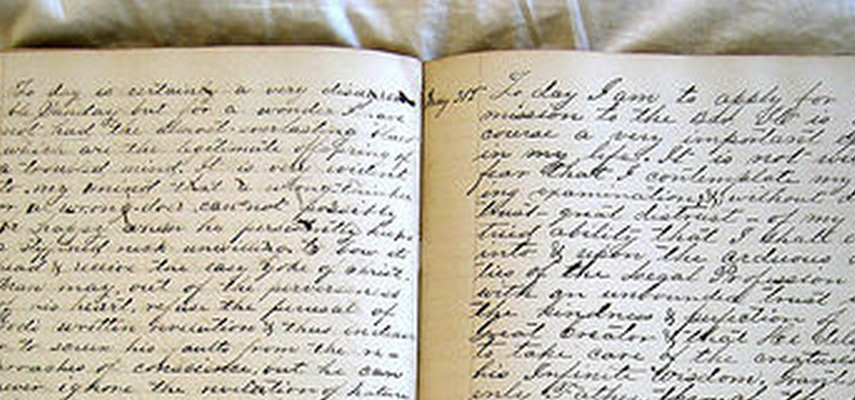The NYT Bestseller reward is one of the top 3 most coveted things in the writer community, the other two being, an infinite life source to draw from, and a Siamese Abyss to call their own. But how does this all apply to Spooktober, well, you see the answer to that is that it doesn’t. And that’s because this article was pre-planned, and we had not come up with the idea of spreading the Halloween spirit this month (post on that this Monday). But what we will be able to spread is writing advice given by the bestselling authors Q&A panel at Fan-X. However, we were complete morons and didn’t record any names, so if any of you out there attended the panel or have a picture of the schedule with the panelist’s names, we would be very much obliged to take that (you can contact us through Instagram, @allthewritinghq) and add the due credits to this article. We apologize profusely and will cancel ourselves so that you don’t have to.
 Also, if you want to check out our post on Fan-X, you can do that by clicking here.
Also, if you want to check out our post on Fan-X, you can do that by clicking here.
Setting Goals
In the beginning, it can be really hard for writers to actually, you know, write. So what you should do to get the creative process flowing is set small word goals to accomplish every day, and if you can’t do every day do every week or heck every month. As long as you have some kind of goal that you’re making progress on then you’re doing it right. And as you continue to make progress your writing ability increases, it’s like working out a muscle, or at least we’ve heard it’s like that, never being to a gym ourselves. But as you continue to write you’ll start feeling more comfortable with higher word goals and as that happens you should readjust.
 And another way to
And another way to force help you to actually write is to set in place a reward for reaching your goal. However, the authors warned that food shouldn’t be what you aim for, you should instead aim to do something you enjoy doing, like going to a movie you really want to see, summoning your Siamese Abyss with blood magic, or a nice evening out on the town. We can remember one author in specific that said that they put money in a container whenever they reached their word goal, and then at the end of whatever draft they were working on they would take out the money and use it to pay for whatever they wanted to do. This is also a good way to simulate payment for your work, it may not be actual money earned, but it certainly feels that way.
Finding the Ability To Write
 Another issue when starting to write is writing good, which is why our whole website exists, to help you get good scrub. If you don’t quite get what we mean then we’ll add something that another author said, they said that they had ideas that seemed so epic, but when they started to actually write they found that their work was absolute crap. And if that’s what’s happening to you then hear the rest of what this mans had to say. The author set upon themself the goal to find what he liked about other authors writing, and then try and use those techniques, patterns, or word choices in their story. And as they did this they continued to get closer to their vision, and so we challenge you to a non-official writing prompt of taking your favorite scenes ever and then using them as a guideline for your one of your WIP’s scenes.
Another issue when starting to write is writing good, which is why our whole website exists, to help you get good scrub. If you don’t quite get what we mean then we’ll add something that another author said, they said that they had ideas that seemed so epic, but when they started to actually write they found that their work was absolute crap. And if that’s what’s happening to you then hear the rest of what this mans had to say. The author set upon themself the goal to find what he liked about other authors writing, and then try and use those techniques, patterns, or word choices in their story. And as they did this they continued to get closer to their vision, and so we challenge you to a non-official writing prompt of taking your favorite scenes ever and then using them as a guideline for your one of your WIP’s scenes.
Finding Time
 Time is the enemy of all writers, ever pushing forward with its dark tendrils grabbing and swallowing the ones who cannot keep up whole, sending them into the deep void of the unknown, and that’s a real downer bro. Time can be a really hard thing to deal with in writing especially if you have a full school schedule or work schedule. And so the most effective way to counteract this is to take every chance you get to write, even if that’s at work or school, all you need to do is find the time. If you find yourself with free time thinking, “I should be writing right now,” then go and write, even if you have to force it.
Time is the enemy of all writers, ever pushing forward with its dark tendrils grabbing and swallowing the ones who cannot keep up whole, sending them into the deep void of the unknown, and that’s a real downer bro. Time can be a really hard thing to deal with in writing especially if you have a full school schedule or work schedule. And so the most effective way to counteract this is to take every chance you get to write, even if that’s at work or school, all you need to do is find the time. If you find yourself with free time thinking, “I should be writing right now,” then go and write, even if you have to force it.
Finding a Way to Love Writing
You remember liking writing at one point, right, but as you got deeper into your work you found it too hard and unlikeable. And this is a normal thing that even seasoned authors go through, it’s just something that you have to work through. The advice given at the panel is to force yourself to love writing. What we do to get ourselves through writing is repeat our humble mantra that goes like this, “AWW YEAH DUDE, THIS IS LIKE SO TOTALLY COOL, AND NOT AT ALL FRUSTRATING!” and then our neighbor gives us a fist bump and finishes the mantra, “YEAH DUDE, YOU FRICKING GOT IT!” and so we suggest trying that out.
 Research
Research
One question that was brought up by someone who attended the Q&A with the intention of actually asking a question (heathen), was that of how to properly research a project. And so the great council of panelists spoke and answered the questioner. First, you must seek guidance from the wise men in the fields in which you question. And as the wise men speak it is advised that you record their words in detail so that your proverbs may be passed on to your future self and generations as scripture. And it is commanded of you to preserve the names of these wise men so that the future generations with their frail human minds shall know who guided your majesty to your shining thro—Oh no, we were possessed by biblical deities, weren’t we. Dangit! Not again. Alright, we’ll break it down for you in a way that can actually be understood. So as you’re about to research a project you should start messaging or meeting in person with someone who knows stuff about what you need to know. Pretty simple, the hardest step is probably reaching out though, but you can do it, buddy. As the person sends you or shows you the information needed you should record this in a journal or online document for later use. And then after you’ve gotten all the info needed you can start working on your project. But before doing that you should record the name of the person who helped you put it in the Acknowledgements section of your book. It’s basically common decency to do this for anyone that helps in the creation of your books, so make sure you do it or else you’re a bad boi and will get nothing for Christmas.
 Finding an Agent
Finding an Agent
The first thing you gotta look for in an agent is what genre they sell, and then after that what kind of sales they’re making. We suggest compiling a list of viable options that both fit the current genre of your book and have good sales. We have a full post on how to spot a crappy agent, click here to check it out. The reason the whole genre thing matters is because the people selling in any given genre know who best to sell to for that genre. So if you were to give a horror agent a fantasy YA novel then they wouldn’t be able to sell your book to the kind of upper-tier publisher that you so desire, and as a result, your book won’t reach the correct audience.
And one thing that a panelist said really stuck with us, and that’s to not sell yourself short when it comes to an agent. Because if you don’t even try to go for a high up agent then you would never know if your book was good enough for the big leagues. You’d end up stuck with a lower level, mediocre agent, that will guide your book to a lower level mediocre publisher, leaving yourself wondering if things could’ve gone better. And that is no bueno. So just shoot your shot at those high up successful fellas, and see if they can make you the next big thing because you never know if it’ll work.
 Also, a quick add-on here that doesn’t really fit anywhere else. Once your agent does find a good publisher and you get a book contract for all your hard work, you should look over it with a lawyer to make sure you’re not getting screwed over, and that your set conditions are met.
Also, a quick add-on here that doesn’t really fit anywhere else. Once your agent does find a good publisher and you get a book contract for all your hard work, you should look over it with a lawyer to make sure you’re not getting screwed over, and that your set conditions are met.
Writing a Query
When writing a query letter you have to treat it as a formal business letter/email, not an All The Writing article (we get that mixed up a lot). So you need to keep a serious tone as you write, but at the same time, you gotta get them interested in your work. And if our instructions aren’t enough for you (we’re fine, this is fine) then there is a website suggested by one of the panelists, agentquery.com, go check it out and learn how to write a proper query letter and maybe some other things as well, you never know.
 And one thing to add when it comes to getting rejected is to understand that the agent is rejecting you as a human being, their rejecting your work. Which can also sting, but oftentimes the agent will provide you with what they disliked, and you can use this resource to help your writing.
And one thing to add when it comes to getting rejected is to understand that the agent is rejecting you as a human being, their rejecting your work. Which can also sting, but oftentimes the agent will provide you with what they disliked, and you can use this resource to help your writing.
Developing a Pitch
When trying to develop a pitch the most important thing to find is the ‘it factor’, the thing that gets people talking about your book, and what sets it apart as unique and interesting. And once you find that then you find the essence of your pitch. And once you find the essence of the pitch you can start developing it into something great. When developing the pitch you have to appeal to the correct audience, in this case, your most likely aiming for an agent or editor, which is usually a more formal tone. And the next thing to do is make sure that the pitch is short, simple, understandable, and conveys the very basic concept of your story. Once you’ve got all that in order you’re ready to either send your pitch via email or preferably in person.
 Finding Voices For Characters
Finding Voices For Characters
In case you don’t know, voice is what an author uses to set them apart as a creator among thousands of other creators. So it’s very important to develop one as you write, lest you become someone lost among the crowd. And this very same concept of voice can apply to all of your characters, as they are not meant to speak like you, they are meant to speak like them. With their own personal vocabulary and word choice. Your voice should shine through everything that isn’t dialogue. So the question is how do you develop a unique voice for your diverse cast of characters, and there are a few ways you can do this. The first is to eavesdrop or borrow from real-life people. Because as you listen to how people talk in the real world you can find some interesting voices that may fit perfectly with the kind of character you’re going for. This one is good for finding realistic voices, but sometimes it takes a bit to find one that clicks. Another way is stealing, but not really, from other authors. By taking what others have already found you can get a headstart on your character’s speech patterns, but the main issue with this one is trying to take these patterns and somehow twisting them into something slightly new. The last way is to just imagine the voices in your own head, this one can be the hardest to nail, but sometimes it can lead to the most interesting results.
 Once you’ve used one of these methods (or one of your own) you can start testing it out to see if the voice sticks. You can do this in a few ways, one being having a fake interview with your character. And though it may seem weird talking to someone who’s not there, just know that it’s all downhill from here kid. This next one includes actually writing, so we suggest creating mock scenes if you’re not ready to write these characters. Another way of testing is by looking at a scene of conversation between 2 or more characters and finding if you can pick out who’s talking without dialogue tags. If you find that the character is too vague and isn’t distinguished among the other character(s) you may need to rethink the voice.
Once you’ve used one of these methods (or one of your own) you can start testing it out to see if the voice sticks. You can do this in a few ways, one being having a fake interview with your character. And though it may seem weird talking to someone who’s not there, just know that it’s all downhill from here kid. This next one includes actually writing, so we suggest creating mock scenes if you’re not ready to write these characters. Another way of testing is by looking at a scene of conversation between 2 or more characters and finding if you can pick out who’s talking without dialogue tags. If you find that the character is too vague and isn’t distinguished among the other character(s) you may need to rethink the voice.
Using a Journal
 We here at the All The Writing HQ are very proud sponsors of the journal, so we were glad to see someone else asking about how to properly use one when writing. One of the authors said that a journal is a place to just brain vomit, and then after the brain vomit, you organize the nicer chunks into a cool story. And other than that you can use a journal for a place to jot down inspiration that you may otherwise forget. Another thing is writing what’s most meaningful to you, treating like a diary almost, so that you can understand better what you’re going through, and how your emotions could be affecting your writing.
We here at the All The Writing HQ are very proud sponsors of the journal, so we were glad to see someone else asking about how to properly use one when writing. One of the authors said that a journal is a place to just brain vomit, and then after the brain vomit, you organize the nicer chunks into a cool story. And other than that you can use a journal for a place to jot down inspiration that you may otherwise forget. Another thing is writing what’s most meaningful to you, treating like a diary almost, so that you can understand better what you’re going through, and how your emotions could be affecting your writing.
Aspects of Yourself
When writing with some aspects of yourself you may think that this is a bad thing, and this isn’t always true. It is true when your self insert into the story either becomes distracting or extremely obvious, but the two often coincide, but if you’re writing with only some of the aspects of yourself put into each character then that’s a good thing. In fact, one of the panelists says that it’s a good indication that you know yourself as a person. Which is always a good thing.
Working With a Big Company
 Some of the authors on the panel were involved in writing stories for major corporations, like Star Wars. And so this spurred the question of how to work with a big company and deal with them meddling in your work. And the authors answered that if you value your work being your own and being untouched by others then you probably shouldn’t sign on to work for corporations. As when you write for a company they own everything you do, and they can change any of your work, even if it is against your will.
Some of the authors on the panel were involved in writing stories for major corporations, like Star Wars. And so this spurred the question of how to work with a big company and deal with them meddling in your work. And the authors answered that if you value your work being your own and being untouched by others then you probably shouldn’t sign on to work for corporations. As when you write for a company they own everything you do, and they can change any of your work, even if it is against your will.
Conclusion
The panel was great and we learned a lot about a lot of aspects of writing. Since this was a NYT Bestseller’s panel the information given was definitely more basic. But basic information is always useful to know, and we even learned a few things. We hope you learned something to, see you next week, and have a nice time of existence (*epic dubstep outro music*)
Links
Check out the Fan-X website by clicking here.
Once again if you happen to have the panelist’s names we would be ever in grateful, and would immediately put all of their necessary links








